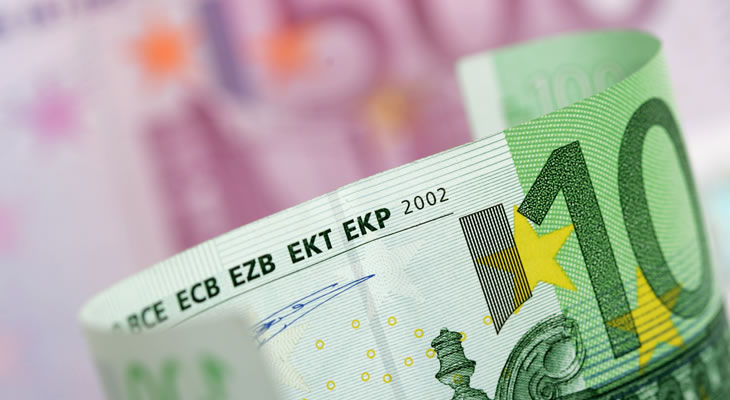Slowing Eurozone Sales Growth Fails to Boost Pound Euro (GBP/EUR) Exchange Rate
A surprise decline in monthly Eurozone retail sales was not enough to shore up the Pound Sterling to Euro (GBP/EUR) exchange rate on Thursday morning.
The unexpected -1.3% drop in sales caught investors off guard, stoking existing worries over the resilience of the Eurozone economy.
As Josie Dent, senior economist at the CEBR, noted:
‘These worse-than-expected figures highlight that we are not yet clear of the impacts of the coronavirus pandemic on Eurozone economies.
‘While job retention schemes are in place, households’ incomes and spending power are somewhat protected from the impacts of the recession. However, governments cannot finance such schemes indefinitely.’
Even so, as markets have already priced higher odds of upcoming European Central Bank (ECB) stimulus action into the single currency this limited the impact of the retail data.
The mood towards Pound Sterling (GBP), meanwhile, soured in response to a weaker-than-expected UK services PMI reading.
Underwhelming German Factory Orders Set to Weigh on Euro (EUR) Demand
Support for the Euro could weaken further ahead of the weekend, however, if July’s German factory orders data fails to impress.
After the significant 27.9% jump in output seen in June forecasts point towards slightly more modest growth of 5%.
Although monthly growth of 5% would still place Germany’s factories on a solid course towards recovery this could still see the Euro falter.
With the wider Eurozone economy showing signs of struggling to sustain its initial bounce back from months of Covid-19 disruption any softening in orders growth may dent EUR exchange rates.
On the other hand, if output sees another solid increase on the month this could further strengthen the appeal of the single currency.
As long as the Eurozone’s powerhouse economy can demonstrate evidence of resilience in spite of the ongoing pandemic the downside potential of the Euro may remain limited.
EUR Exchange Rates to Benefit from US Dollar Softness
A fresh decline in demand for the US Dollar (USD) could also encourage the single currency in the near term, thanks to the negative correlation of the Euro to US Dollar (EUR/USD) exchange rate.
If August’s US non-farm payrolls report misses expectations, showing a smaller increase in job creation in the last month, this may prompt a sharp uptick for the Euro.
Comments from European Central Bank (ECB) chief economist Philip Lane could offer the GBP/EUR exchange rate a potential rallying point on Friday, however.
As Lane recently suggested that the exchange rate ‘does matter’ in terms of the central bank’s monetary policy his latest comments could spur another bout of EUR exchange rate bearishness.
Even so, unless markets see an indication to expect imminent ECB policy action Lane’s ultimate impact on the Euro may still prove limited at this juncture.


Comments are closed.